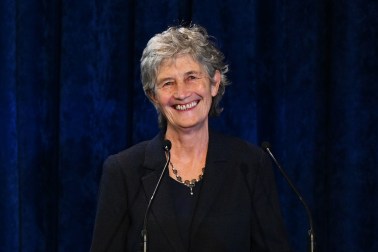Way back in 1984 when I was editing, rather incompetently, the New Edinburgh Review, I published a story by Raymond Carver. It was entitled ‘Vitamins’. I can’t remember how much I knew about Carver then, or even how the manuscript arrived on my desk. Probably it was sent by his agent, and was taken from a new collection, Cathedral which was to be published by Collins. It is a good story — I’ve just read it again — and less minimalist than some of the work by which he made his name.
Which is very much to the point, for it seems that these stories owed a great deal to his editor, Gordon Lish, and that Carver himself was not entirely happy, to put it mildly, with Lish’s surgery which cut some stories by half, or even more than that.
‘Even though they may be closer to works of art than my original,’ he wrote to Lish, ‘they’re still apt to hasten my demise’. In short, the style, with its abrupt transitions and unspoken sentences, which came to be called Carveresque, might more accurately have been termed Carver-Lish or Carver-Lite. In the collection which Carver called Beginners and Lish re-titled What we talk about when we talk about love, it wasn’t only cuts that were made. In one story a man murders a woman in Carver’s original version, two women in the published one.
Now Carver’s second wife Tess Gallagher, whom he met when he was no longer a ‘practising alcoholic’ and with whom he lived for the last dozen years of his life, has now brought out a new edition of these stories, with the original title Beginners which she claims is the book as Carver himself wrote it, before Lish got to work on it.
Criticism of what Lish did to Carver — or perhaps for him? — has been about for years, provoking him in 1998 to dismiss his author as a ‘mediocrity’ whom he had made famous. He later retracted this comment, but it may well have represented his true opinion. It would be quite understandable if he believed that his editorial work had improved the stories and so made Carver’s reputation. Conversely, it is equally understandable if Carver resented this, preferred the stories as he had written them, and even felt there was something false about the esteem in which he came to be held.
The story of Carver and Lish, and the publication now of the Lish-less edition of the stories raises a number of points, none of which is easy to answer satisfactorily.
The first concerns the proper relationship of author to editor. Some authors, Iris Murdoch for one, have refused to be edited at all. Like Yahweh, they declare ‘what I have written, I have written’. If they are authors of a certain standing, then they are likely to be able to override any editorial suggestions. Neither Evelyn Waugh nor Muriel Spark would have submitted to an editor as poor Carver did to Gordon Lish. On the other hand there are authors, of a different type, who are less sure about what they want to say than Waugh and Spark were. William Golding was one such. John Carey’s biography shows just how often he was uncertain about the way a book was going, and how much he relied on his editor at Faber, Charles Monteith, to offer helpful suggestions when he had read the first draft of a novel.
Second, we may ask to what extent credit for a heavily edited book belongs to the author. Now that so many bestsellers, both fiction and non-fiction, are ghost-written, such a question may seem absurd. But it matters to a real author — clearly it mattered a great deal to Carver .He felt that his work had been taken away from him and that there was something spurious about the reputation it won him. Was he his own man or had Lish stolen his identity and foisted a false on him? The answer must surely depend on whether the author feels that he remained in control of his book. You can use editors without losing possession of your work, just as Dumas used collaborators to do research and sketch in outlines, and Renaissance painters employed apprentices to work on the simpler parts of a picture.
Finally is Tess Gallagher justified in publishing Beginners as Carver wrote it before the book was ‘improved’ by Lish? The answer is surely ‘yes’, because she knows Carver was unhappy with the Lish version. Admittedly the original one may do some damage to Carver’s standing. It may make him seem a less remarkable and more ordinary writer. But reading the stories as he wrote them should be of interest, and some may seem better than in the Lish edition. I suspect Lish had no hand in ‘Vitamins’ which I published so many years ago, and, reading it again, I still find it impressive. The only thing to regret is the poor standard of my own proof-reading.





Comments